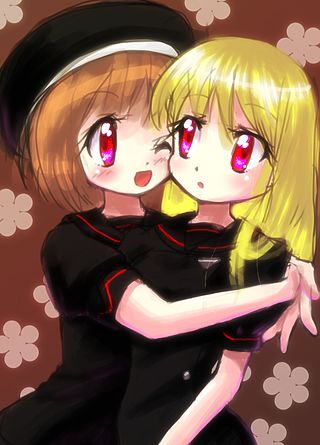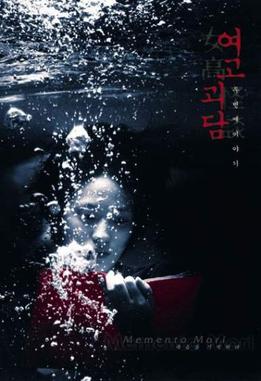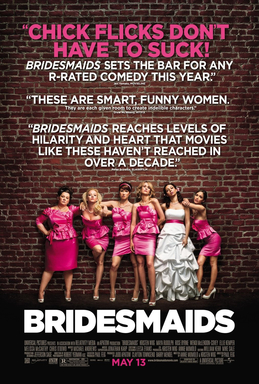
Romantic orientation, also called affectional orientation, is the classification of the sex or gender which a person experiences romantic attraction towards or is likely to have a romantic relationship with. The term is used alongside the term "sexual orientation", as well as being used alternatively to it, based upon the perspective that sexual attraction is only a single component of a larger concept.

Yuri, also known by the wasei-eigo construction girls' love, is a genre of Japanese media focusing on intimate relationships between female characters. While lesbianism is a commonly associated theme, the genre is also inclusive of works depicting emotional and spiritual relationships between women that are not necessarily romantic or sexual in nature. Yuri is most commonly associated with anime and manga, though the term has also been used to describe video games, light novels, and literature.
In sociology, homosociality means same-sex relationships that are not of a romantic or sexual nature, such as friendship, mentorship, or others. Researchers who use the concept mainly do so to explain how men uphold men's dominance in society.

The buddy film is a subgenre of adventure and comedy film in which two people go on an adventure, mission, or road trip. The two typically are males with contrasting personalities. The contrast is sometimes accentuated by an ethnic difference between the two. The buddy film is commonplace in Western cinema; unlike some other film genres, it endured through the 20th century with different pairings and different themes.
A "Boston marriage" was, historically, the cohabitation of two wealthy women, independent of financial support from a man. The term is said to have been in use in New England in the late 19th–early 20th century. Some of these relationships were romantic in nature and might now be considered a lesbian relationship; others were not.

A romantic friendship, passionate friendship, or affectionate friendship is a very close but typically non-sexual relationship between friends, often involving a degree of physical closeness beyond that which is common in contemporary Western societies. It may include, for example, holding hands, cuddling, hugging, kissing, giving massages, or sharing a bed, without sexual intercourse or other sexual expression.

Memento Mori is a 1999 South Korean horror film, and the second installment of the Whispering Corridors film series. It is a sequel to 1998's Whispering Corridors, and is also set in an all-girls high school, but the films are otherwise unrelated. Memento Mori was one of the first Korean commercial films to depict lesbian characters. However, prevailing Korean attitudes constrained its potential to be widely viewed, even more so as the controversial themes targeted the teen demographic.
In sociology, heterosociality describes social relations with persons of the opposite sex or a preference for such relations, often excluding relationships of a romantic and sexual nature. The opposite of heterosociality is homosociality.

In ethology and social science, female bonding is the formation of a close personal relationship and patterns of friendship, attachment, and cooperation in females.

Nobuko Yoshiya was a Japanese novelist active in Taishō and Shōwa period Japan. She was one of modern Japan's most commercially successful and prolific writers, specializing in serialized romance novels and adolescent girls' fiction, as well as a pioneer in Japanese lesbian literature, including the Class S genre. Several of her stories have been made into films.
A committed relationship is an interpersonal relationship based upon agreed-upon commitment to one another involving love, trust, honesty, openness, or some other behavior. Forms of committed relationships include close friendship, long-term relationships, engagement, marriage, and civil unions.

Mark Everett Sloan, M.D., F.A.C.S. is a fictional character from ABC's medical drama television series Grey's Anatomy, portrayed by Eric Dane. Created by showrunner Shonda Rhimes, the character was introduced in season two as Derek Shepherd's best friend. Mark caused the end of Derek’s marriage by sleeping with Derek's then-wife, Addison Montgomery. Mark moves to Seattle in season three to make amends with Derek and becomes Seattle Grace Hospital's new plastic surgery attending, after which he is dubbed "McSteamy" by the female interns for his good looks. Mark's focal storyline in the series involved his romantic relationship with Lexie Grey, one of the interns who was on his service when they started dating. Both he and Lexie sustained fatal injuries during an aviation accident in the eighth-season finale, and Seattle Grace Mercy West is later renamed Grey Sloan Memorial Hospital after their passing.

Class S, or S kankei, abbreviated either as S or Esu (エス), is an early twentieth-century Japanese wasei-eigo term used to refer to romantic friendships between girls. The term is also used to designate a genre of girl's fiction which tells stories about the same, typically focused on senpai and kōhai relationships wherein one girl is senior in age or position to the other. The "S" is an abbreviation that can stand for "sister", "shōjo", "sex", "schön", and "escape".

A bromance is a very close and non-sexual relationship between two or more men. It is an exceptionally tight, affectional, homosocial male bonding relationship exceeding that of usual friendship, and is distinguished from normal friendship by a particularly high level of emotional intimacy. The emergence of the concept since the beginning of the 21st century has been seen as reflecting a change in societal perception and interest in the theme, with an increasing openness of Western society in the 21st century to reconsider exclusivity constraints.

Chick flick is a slang term, sometimes used pejoratively, for the film genre catered specifically to women's interests, and is marketed toward women demographics. They generally tend to appeal more to a younger female audience and deal mainly with love and romance. Although many types of films may be directed toward a female audience, the term "chick flick" is typically used only in reference to films that contain personal drama and emotion or themes that are relationship-based. Chick flicks often are released en masse around Valentine's Day. Feminists such as Gloria Steinem have objected to terms such as "chick flick" and the related genre term "chick lit", and a film critic has called it derogatory.

A female buddy film is a type of buddy film. In these films, women are the main characters and their friendships and relationships with each other drive the story. The plots of female buddy films can share the same concept of male buddy films—opposite personalities go on an adventure or journey of sorts—or they can concern an ensemble group of women. Female buddy films gained popularity in the 1960s from the emergence of the woman's film and the male buddy film genres.

Jucy is an Australian comedy feature film produced in 2010 about the womance between two best female friends. The film was written by Stephen Vagg, directed by Louise Alston and produced by Kelly Chapman. It is the second in a planned "quarter life crisis" trilogy from Vagg and Alston following the 2007 romantic comedy All My Friends Are Leaving Brisbane.

Bridesmaids is a 2011 American comedy film directed by Paul Feig, written by Annie Mumolo and Kristen Wiig, and produced by Judd Apatow, Barry Mendel, and Clayton Townsend. The story centers on Annie, who suffers a series of misfortunes after being asked to serve as maid of honor for her best friend Lillian. The film also stars Rose Byrne, Wendi McLendon-Covey, Ellie Kemper, Melissa McCarthy, and Chris O'Dowd.
A bromantic comedy is a comedy film genre that takes the formula of the typical "romantic comedy" but focuses on close male friendships.
Queerplatonic relationships (QPR) and queerplatonic partnerships (QPP) are committed intimate relationships which are not romantic in nature. They may differ from usual close friendships by having more explicit commitment, validation, status, structure, and norms, similar to a conventional romantic relationship. The concept originates in aromantic and asexual spaces in the LGBT community. Like romantic relationships, queerplatonic relationships are sometimes said to involve a deeper and more profound emotional connection than typical friendship.













